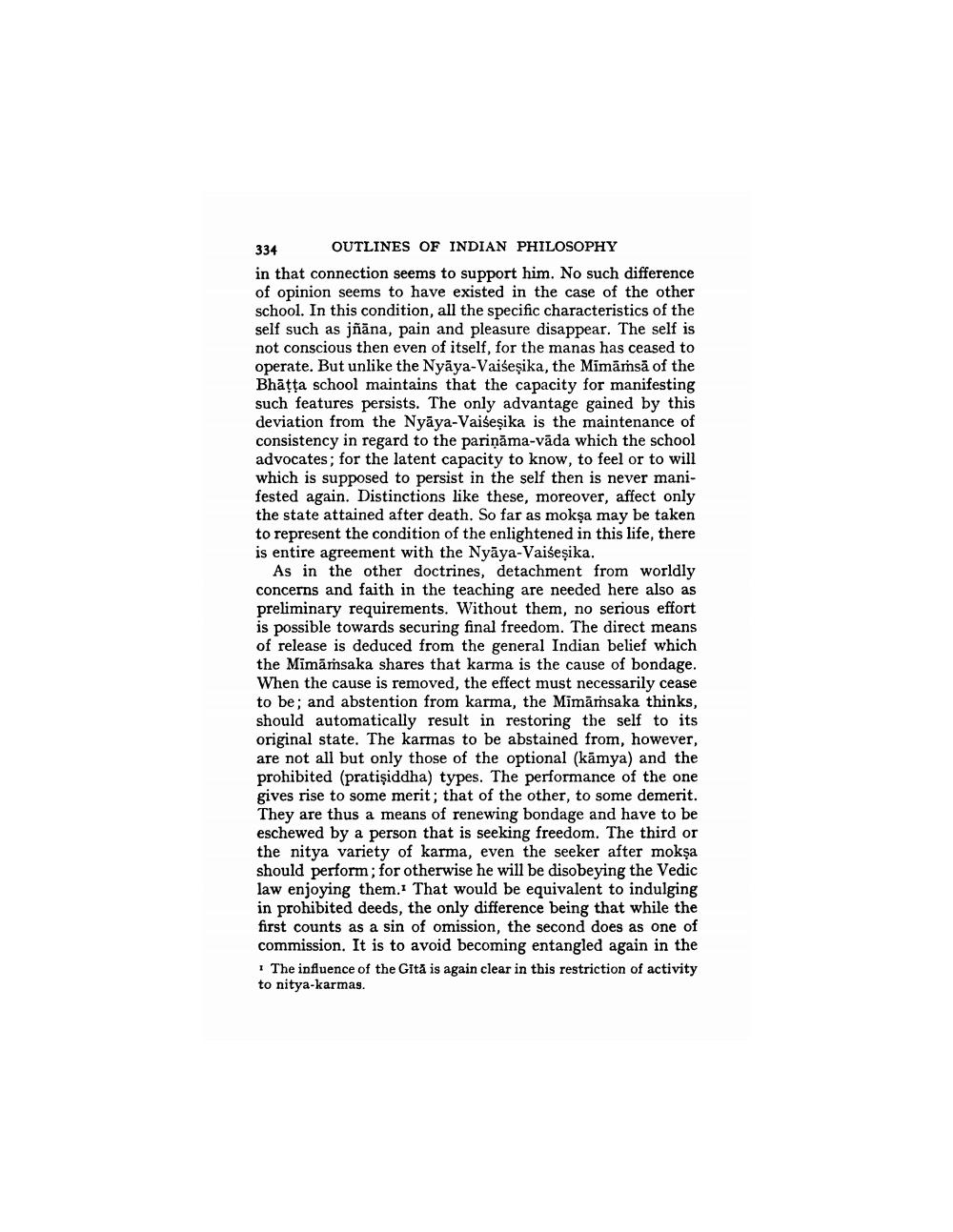________________
334 OUTLINES OF INDIAN PHILOSOPHY in that connection seems to support him. No such difference of opinion seems to have existed in the case of the other school. In this condition, all the specific characteristics of the self such as jñāna, pain and pleasure disappear. The self is not conscious then even of itself, for the manas has ceased to operate. But unlike the Nyāya-Vaiseşika, the Mimāṁsā of the Bhāțța school maintains that the capacity for manifesting such features persists. The only advantage gained by this deviation from the Nyāya-Vaisesika is the maintenance of consistency in regard to the parināma-väda which the school advocates; for the latent capacity to know, to feel or to will which is supposed to persist in the self then is never manifested again. Distinctions like these, moreover, affect only the state attained after death. So far as moksa may be taken to represent the condition of the enlightened in this life, there is entire agreement with the Nyāya-Vaišeşika.
As in the other doctrines, detachment from worldly concerns and faith in the teaching are needed here also as preliminary requirements. Without them, no serious effort is possible towards securing final freedom. The direct means of release is deduced from the general Indian belief which the Mimāṁsaka shares that karma is the cause of bondage. When the cause is removed, the effect must necessarily cease to be; and abstention from karma, the Mimāṁsaka thinks, should automatically result in restoring the self to its original state. The karmas to be abstained from, however, are not all but only those of the optional (kāmya) and the prohibited (pratişiddha) types. The performance of the one gives rise to some merit; that of the other, to some demerit. They are thus a means of renewing bondage and have to be eschewed by a person that is seeking freedom. The third or the nitya variety of karma, even the seeker after mokşa should perform; for otherwise he will be disobeying the Vedic law enjoying them. That would be equivalent to indulging in prohibited deeds, the only difference being that while the first counts as a sin of omission, the second does as one of commission. It is to avoid becoming entangled again in the
The influence of the Gita is again clear in this restriction of activity to nitya-karmas.




